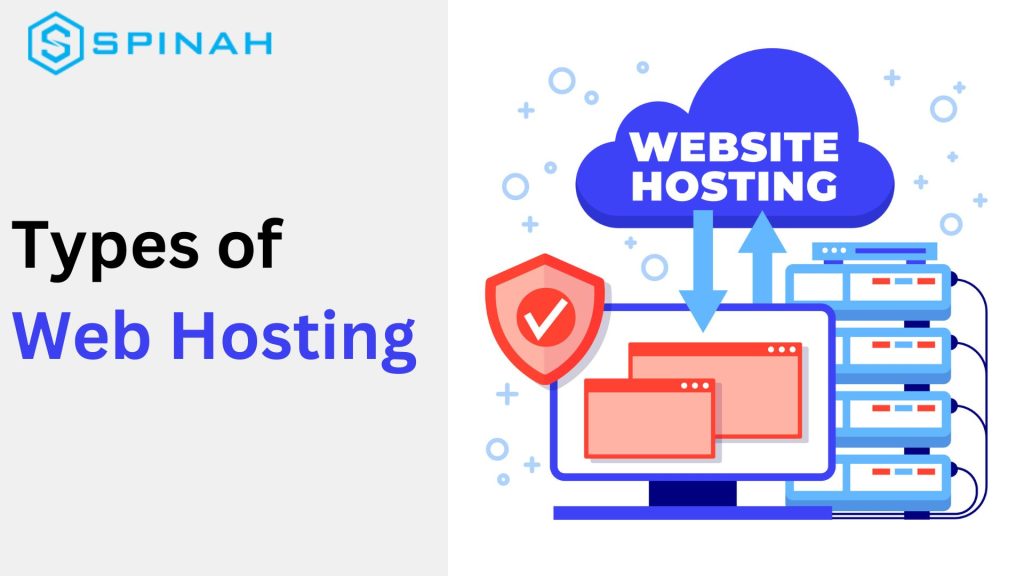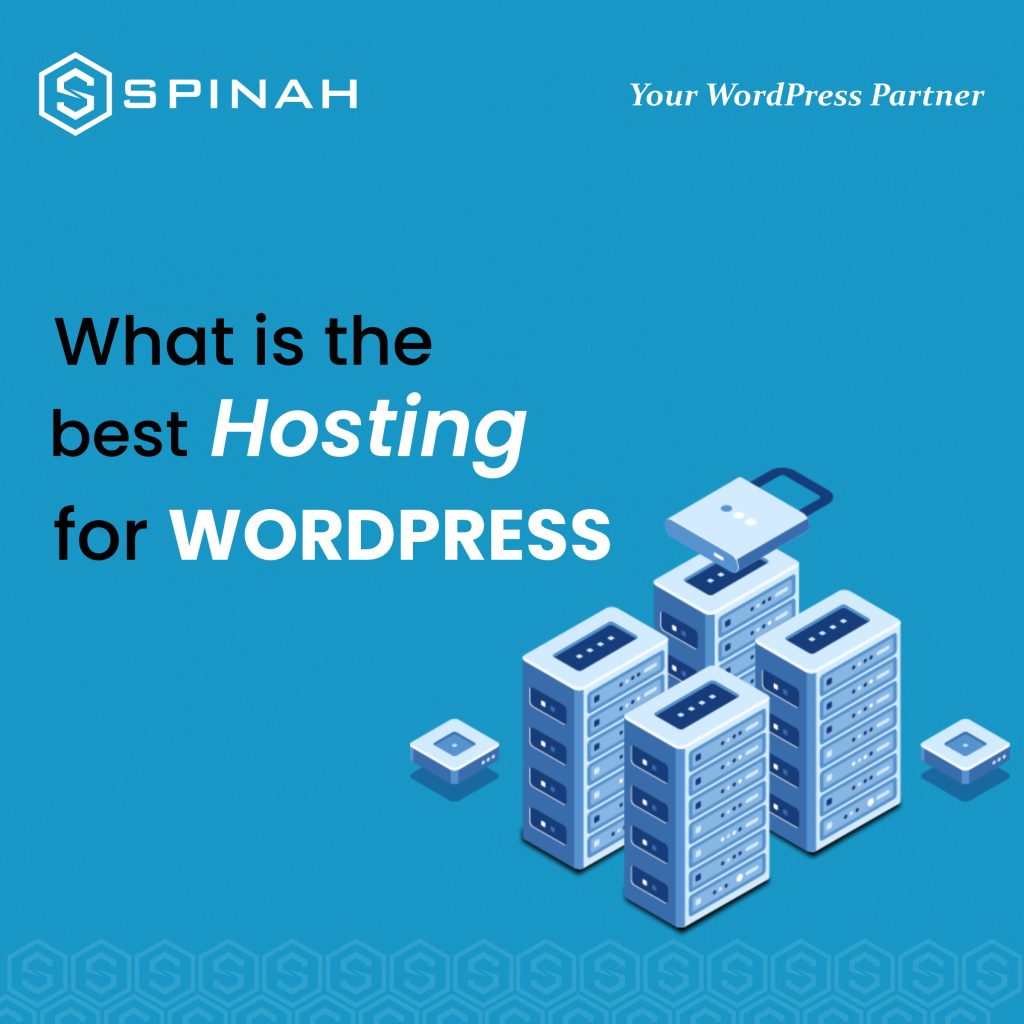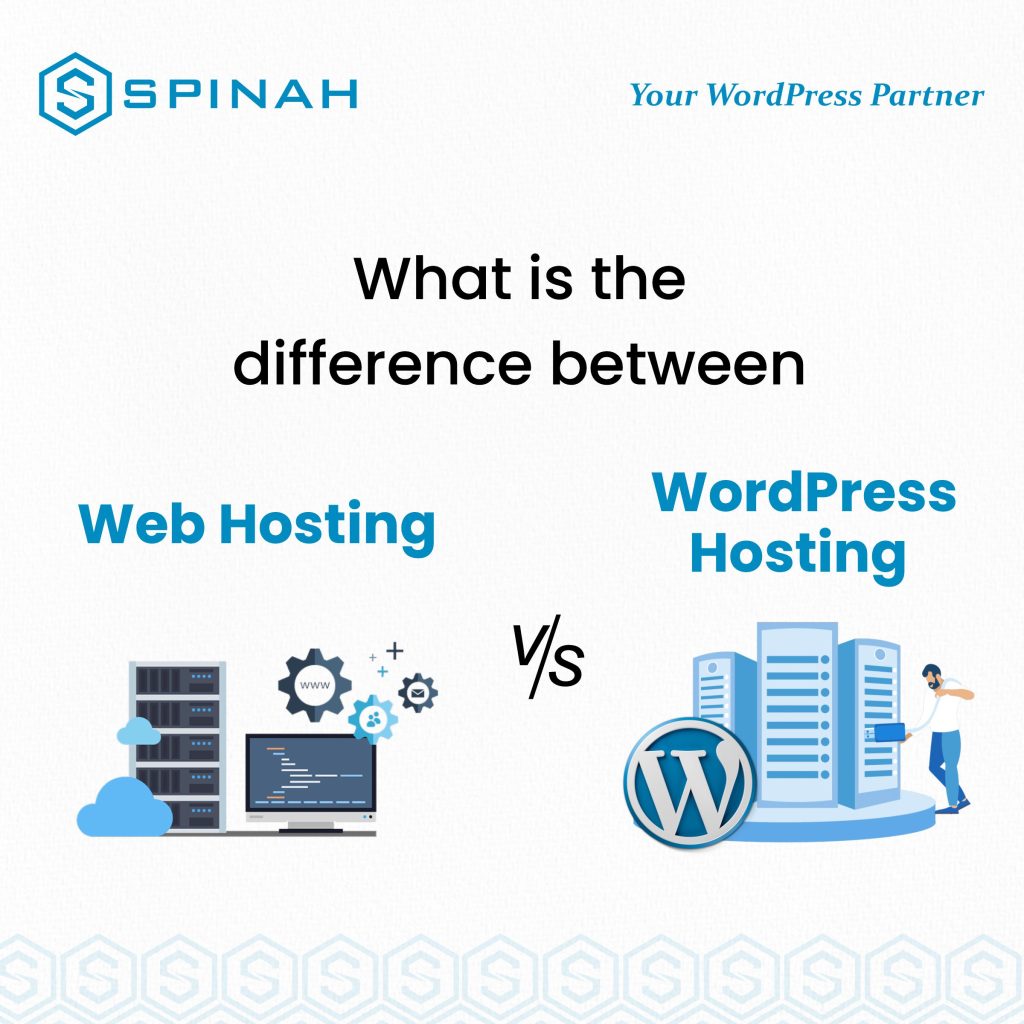8 Different Types of Web Hosting to Consider for Your Website

If you are considering the idea of having a website, the first step is to choose a web host. This guide details what you need to know!
Dedicated IP Addresses: Definition, Benefits, and Use Cases

Discover the unique benefits and enhanced performance a dedicated IP can add to your online presence. Read Further.
Web Hosting Account: How it Works and Everything You Should Know
Thinking of opening a website and wondering what a web hosting account is? Find out now in this informative guide
A Comprehensive Guide to Choosing the Right Web Hosting Service for Your Needs

Choosing the right web hosting service for your needs is an integral decision you should consider carefully when building a website. An efficient and reliable hosting platform can mean the difference between having a successful online presence and having a website without the necessary reach or speed. Granted, you require a successful online presence and speed, but that’s not all. You also need web hosting that provides flexibility and scalability. This comprehensive guide will delve into areas such as pricing, customer support, hosting options, uptime guarantees, API integration options, and much more. Exploring this guide is a great way to make sure you make the best choice for the growth of your digital business. So, let’s get started! Analyze Your Needs Before you start looking for a hosting provider, you must first analyze your website’s needs. What type of website are you creating? For instance, will it be a blog, eCommerce store, portfolio website, or something else? If you are creating an online shop, you need to ensure the hosting provider offers all the necessary tools to build and run an online store. If you’re building a portfolio website, look for features like drag-and-drop page building and customizable templates. Furthermore, you also need to consider the disk space and bandwidth required. For example, if you expect a lot of traffic, you’ll want to ensure that your hosting plan offers unlimited bandwidth or at least an allotment that meets your needs. Once you know your website’s requirements, it will be easier to narrow down the list of potential hosting providers. Determine the Type of Hosting You Need Now that you’ve analyzed your website’s needs, it’s time to determine which hosting plan best suits them. Once you know your website’s requirements, narrowing the list of potential hosting providers will be easier. Several hosting plans are available; therefore, choosing the best that meets your needs is vital, as this will ensure your website’s success. Let’s quickly take you through the types available and, of course, look at the pros and cons of each type to have comprehensive knowledge about them. 6 Types of Web Hosting Available Here is a breakdown of the various types of web hosting. Share Hosting Shared hosting is a type of web hosting service that involves multiple websites sharing a single physical server and its resources, including storage space, processing power, and bandwidth. This means multiple users use the same server, storing each website’s data in a shared location. Shared hosting is an affordable option for individuals and small businesses that do not require a lot of resources or have a limited budget for web hosting. It is also a popular choice for new websites that are just starting and have low traffic volumes. With shared hosting, the costs are shared among all users, making it more cost-effective than other types of hosting. One of the advantages of shared hosting is its ease of use. The hosting provider handles all the technical aspects of server maintenance, security, and updates. Users do not need technical knowledge or expertise to operate the hosting service. The hosting provider manages all the necessary software and hardware, allowing users to focus on their website’s content. However, there are some disadvantages to shared hosting. Because multiple users share the same server and its resources, there may be performance issues when one website uses more resources than it should, causing other websites on the same server to slow down or crash. Additionally, shared hosting is less flexible than other types of hosting, such as VPS or dedicated hosting, because users cannot install their software or make changes to the server’s settings. Virtual Private Server (VPS) Hosting Image Source: FreePik Virtual Private Server (VPS) hosting is a type of web hosting where a physical server is divided into multiple virtual servers, each with its own resources, operating system, and software. VPS hosting is less expensive than dedicated hosting and gives you more freedom, control, and security than shared hosting. For example, a simple and basic WordPress website can be run on a single-core VPS with 1 GB of RAM. A more complex website like an eCommerce store may need a multi-core VPS with 8 GB of RAM or even higher. The biggest advantage of VPS hosting is its scalability. The server can be upgraded to meet the website’s needs as traffic and storage needs grow. This flexibility allows you to easily add resources without switching hosting plans or providers. Furthermore, users can customize their VPS with specific software, resources, and configurations and have root access to their virtual server. VPS hosting is suitable for websites with moderate to high traffic volumes and resource requirements, as well as those that require custom software installations and configurations. Cloud Hosting When we are talking cloud hosting, it is different from many other types of hosting because it does not involve a single physical server. A system known as cloud hosting distributes resources across numerous servers linked together by the internet. This type of hosting offers several advantages, including scalability and reliability. Cloud computing can be used for many things, like hosting a website or managing a database. Cloud hosting offers more flexibility and scalability than VPS hosting, as users can easily upgrade their resources without migrating from one server to another. Additionally, cloud hosting is more reliable; if one server goes down, other servers in the cloud are still online. Cloud hosting comes with higher setup fees and monthly costs than shared or VPS hosting; however, it can be very cost-effective if your website needs to scale quickly and require more resources. Dedicated Hosting We have successfully explained what cloud hosting is; let’s now look into dedicated hosting. Dedicated hosting involves one physical server with all its resources devoted to a single user or organization. In addition, dedicated hosting is suitable for high-traffic websites and complex applications requiring additional resources beyond VPS and cloud hosting. Dedicated servers are more secure than other types of hosting since all the resources
From One to Many: Hosting Multiple Websites on One Server

The joy of every entrepreneur is to expand. As your business grows, the chances are high that at some point you will be interested in hosting multiple websites on a single server. With domain names becoming a generic commodity, more and more people actually own a domain name. However, more often than not, these people do not only own one domain name; they have several domain names registered under their names. What is missing is often the knowledge on how to host the matching websites without paying a fortune Even while this could appear difficult at first, as you learn more about it, you’ll realize that anyone with a little technological know-how can truly do it. In this blog post, you will learn how to host numerous websites on one server by following this straightforward instructions that are broken down into five easy steps: Hosting a Website: What Is It? Hosting a website is more complex than it may appear at first glance. When you host a website, you essentially give the files that comprise it a home on the internet. Businesses and individuals using dedicated servers or VPS and intend to create multiple applications on a separate domain, usually go through the multiple website hosting on a single server route. Steps to Hosting Multiple Websites on One Server The first step is to choose a server that has enough resources to host multiple websites. For sites that require fewer resources, hosting multiple sites on a cloud server might be an excellent idea to save cost. However to host multiple sites with extensive resources like storage space, RAM and CPU power, here are steps to follow; Step 1: Buy Valid Domain Names and a Shared Hosting Plan The first two steps in adding multiple sites to one server are as follows: Purchase a Shared Hosting Package To begin, you will need to purchase a shared hosting package from a reliable web host. This plan is the backbone of your website and will be used to store all of your files in one place. Purchase Domains That You Want to Add You will also need to purchase domain names for each website that you want to add. This is the address that people will use to access each of your websites and usually takes the form of “yourwebsite.com.” Step 2: Incorporate a Domain on the Server Through Cpanel Once you’ve bought your shared hosting plan, you can log in to your cPanel dashboard. The cPanel has an easy-to-use interface where you can control your server’s files and settings. It also includes tools to help set up and configure your websites quickly and easily, including adding domains that you have purchased. To add a domain in cPanel, you will first need to select the Domains option from the cPanel home screen. From there, you will see two options: Addon Domains and Subdomains. Select the Addon Domain option to continue. You will be asked for your domain name, username, and password for the new domain. Once you have entered the information, click Add Domain. When finished, select Add Domain. A success notification will appear Step 3: Make Any Necessary Changes to the Nameservers Once you have added a domain to your server, you will need to make sure that it is connected to the correct nameservers. The job of the nameservers is to connect your domain name to the web host and make it accessible on the internet. Most web hosting providers will provide you with their own nameservers, so all you need to do is update your domain’s settings with them. Changing a domain’s nameservers depends on where you bought it, but it usually involves logging into your account with the domain registrar and changing the nameserver settings. If you registered your domain with Bluehost, follow this example to complete the procedure. Select the DNS tab from the Domains menu on the left by navigating there: Next, select Edit under the Name Servers section. A nameserver edit Select Custom Nameservers under Setup Type, and then enter the nameservers for your account: In order to save the modifications and update the nameservers, click the Save button last. At this point, you have pointed your domain names to the single server that will now function as the host for all of your websites. Step 4: Install WordPress on the Server Constitutes You’ll need to install WordPress on each website you want to host on the same server. This is a powerful content management system (CMS) that allows you to create beautiful websites with ease. To install WordPress, you must first log in to your cPanel dashboard and choose “Softaculous Apps Installer.” Once you find WordPress in the Softaculous Apps Installer, you can easily install it on your server with just a few clicks. Click “Install Now” next. To access a secure HTTPS website, click Choose Protocol, then SSL Certificate. Select http instead if your website lacks an SSL certificate. Then click Choose Domain to choose the domain name for your website. The “In Directory” section follows. Leave it empty: Insert your site name and site description in the Site Settings section by scrolling down. Jot down the essentials; these specifics can be refined later. Last, add a user to your site and either make a password by hand or use the one that is automatically generated. Keep in mind that you should write down your password and store it safely. Step 5: Setup the Fundamentals of Your WordPress Website Once WordPress is installed, you can begin setting up the fundamentals for your website. This includes selecting a theme, creating pages and posts, adding plugins, customizing settings, and more. You can find detailed guides all over the web to help you with this process. Using Virtual Server to Hosting Multiple Websites A virtual server can be thought of as a way to host multiple websites on a single web server instance. There are three types of virtual hosting: Name-based virtual hosting, IP-based virtual hosting,
7 Best WordPress Hosting Services for Your Websites

Today, WordPress has grown to be the most popular content management system. It has been used to build and manage websites and blogs. Beginners can start with WordPress. It is the best blogging platform and website creation tool. To help you out, we’ve compiled a list of the seven best WordPress hosting providers. Each provider offers something unique, from reliable shared hosting to powerful managed WordPress hosting. So regardless of your website’s size or the goals you have for it, you’ll find a provider that can meet your needs. In this blog post, we’ll take an in-depth look at the seven best WordPress hosting services and explore why each could be the perfect fit for your website. Hosting Services Best Free Plan Cheapest plan (monthly plans) Rating from users (G2/, Capterra) Kinsta Managed WordPress Hosting Service No $35 per month G2: 4.8/4.5Capterra: 4.9/5.0 SiteGround Hosting and outstanding support No $3.99 per month G2: 4.1/5.0Capterra: 4.6/5.0 Bluehost Leading web hosting solutions company No $2.95 per month G2: 3.6/5.0Capterra: 4.2/5.0 Hostgator Website builder for bloggers and small businesses No $2.75 per month G2: 3.6/5.0Capterra: 3.9/5.0 Hostinger Shared hosting providers No $1.99 per month G2: 4.1/5.0Capterra: 4.6/5.0 WP Engine Reliable WordPress hosting No $20 per month G2: 4.6/4.5Capterra: 5.0/5.0 GoDaddy Domain provider and web host No $8.99 per month G2: 4.2/5.0Capterra: 4.2/5.0 Kinsta Kinsta is a managed WordPress hosting service designed for high-performance websites. It is powered by the Google Cloud Platform and provides a secure and reliable platform for hosting WordPress sites. Kinsta offers a range of features, including automated backups, PHP 7 support, and a custom caching system designed to improve website performance. Features Pros Cons Pricing Bluehost Endurance International Group is the owner of the web hosting business Bluehost. It ranks among the top 20 web hosts and hosts over 2 million domains alongside its sister firms, FastDomain, iPage, and Hostmonster. Bluehost offers shared VPS, cloud, and dedicated hosting plans and domain registration services. Features Pros Cons Pricing SiteGround SiteGround is a web hosting company that provides shared hosting, cloud hosting, dedicated servers, and reseller hosting services. It also provides domain registration, SSL certificates, and other web hosting services. SiteGround is known for its reliable and fast services, with a 99.99% uptime guarantee and 24/7 customer support. Features Pros Easy-to-use Control Panel: It offers a user-friendly control panel that makes it easy for customers to manage their hosting account and website. The control panel usually has tools for managing databases, email accounts, and other parts of the hosting service. Free Site Transfers: which means that they will assist in transferring your website from your current hosting provider to SiteGround at no extra cost. This is useful if you wish to change hosting providers or if you have multiple websites and wish to consolidate them into one account. Fast, Reliable, and Secure Hosting: fast loading times are important for user experience and search engine ranking. Reliability means that your website will be up and running with minimal downtime. Security is important to protect your website and your visitors’ data from malicious attacks. One-click installer for WordPress and Joomla: SiteGround offers a one-click installer for WordPress and Joomla, which makes it easy to install and set up those popular content management systems (CMS) on your website. This lets you set up a website quickly without having to upload files and create databases by hand. Free Daily Backups: It automatically creates backups of your website’s files and databases every day and stores it for 30 days. This enables you to restore your website in the event of data loss or if you need to undo changes you made. If you back up your website every day, you’ll be able to fix it quickly and easily, so you won’t lose any data or work. Cons Pricing HostGator HostGator is a web hosting company that provides various services such as shared hosting, reseller hosting, VPS hosting, cloud hosting, dedicated servers, and domain registration. HostGator offers a variety of features, such as unlimited disk space, unlimited bandwidth, and a range of easy-to-use site-building tools. Features Pros Cons Pricing Hostinger Hostinger is a web service that provides various hosting plans, including shared web hosting, VPS hosting, and dedicated servers. Hostinger offers a range of features and services, such as domain registration, website builders, email services, and more. Hostinger’s primary focus is on providing reliable, affordable, and user-friendly web hosting solutions to businesses and individuals. Features Pros Cons Pricing WP engine WP Engine is a WordPress hosting provider that provides managed hosting services for websites and applications built on the WordPress platform. WP Engine offers a range of hosting services, including shared, managed, and dedicated hosting, as well as a range of premium add-ons, such as advanced security, caching, and staging environments. WP Engine also provides extensive tools for monitoring, managing, and optimizing WordPress sites. Features Pros Cons Pricing GoDaddy GoDaddy Hosting is a web hosting service offered by GoDaddy, the world’s largest technology provider dedicated to small businesses. GoDaddy Hosting provides reliable, secure, and affordable hosting solutions for websites of all sizes. With features like unlimited storage, unmetered bandwidth, and a 99.9% uptime guarantee, GoDaddy Hosting makes it easy to get your website up and to run quickly. They also offer various add-on services, such as SSL certificates, domain privacy protection, and website security. Features Pros Cons Pricing Methodology for Choosing Best WordPress Hosting Website Studying is necessary in order to select the best WordPress hosting site, but don’t worry! There are some key factors that we can consider to help us make an informed decision. Let share with you a methodology that you can follow to find the best WordPress hosting website for your specific needs. Research Hosting Providers: Research different hosting providers that offer WordPress hosting services. You can use online resources like review websites, forums, and social media to find reliable hosting providers. Check for Performance and Uptime: Look for hosting providers that offer fast server speed and high uptime percentages. Check reviews
Web Hosting vs WordPress Hosting: A Comparative Analysis

It’s no longer news that Web hosting and WordPress hosting are the two main players in the chain of hosting systems. These two platforms are primarily built to host a website, so it follows that they possess some unique features but you should also be conscious of the differences that set them apart from each other. Therefore, this article will help you have a clearer picture of the main differences between the two hosting services and help you decide which one is most suitable for your website’s needs. We will also discuss the advantages and disadvantages of both hosting services alongside some tips on how to maximize them. Let’s pump the gas! Web Hosting Web hosting is the process of storing and managing data on servers connected to the internet. The servers are responsible for responding to requests from clients (browsers) for web pages that have been published online. In other words, web hosting provides the physical infrastructure for websites to be accessible on the internet. Types of Web Hosting There are different types of web hosting but let’s streamline our focus to shared hosting, VPS hosting, and dedicated hosting. Shared Hosting Shared hosting is a type of web hosting service where multiple websites are hosted on a single server. It is the most basic and economical form of web hosting. After all, the cost of the server is shared among many customers. The main benefit of shared hosting is its low cost and this makes it a go-to option for small businesses and private individuals. However, the downside here’s that the resources of the server are shared among all the websites hosted on it which can lead to slower website performance and limited control over the server. VPS (Virtual Private Server) Hosting VPS (Virtual Private Server) hosting is a type of web hosting that offers more control and resources than shared hosting. In VPS hosting, a single physical server is divided into multiple virtual servers, each with its own operating system and resources. This allows for more control over the server and better performance since the resources of the server are not shared among multiple websites. Hence, are you a medium-sized business owner or individual with preference for more control and resources over the system and resources? Your best bet here is that you opt for VPS hosting instead of shared hosting. Dedicated Hosting As the name suggests, dedicated hosting is a type of web hosting service where a single server is dedicated to a single customer. This means that the customer has full control over the server and its resources and is not sharing the server with any other websites. Dedicated hosting is the most expensive form of web hosting but also the most powerful and customizable. It is ideal for large businesses and organizations with high-traffic websites and require a high level of control over their server resources. Examples of Web Hosting Bluehost Bluehost is one of the most popular web hosting providers and offers a wide range of hosting options including shared hosting, VPS hosting, and dedicated hosting. They are known for their easy-to-use control panel and excellent customer service. HostGator HostGator is another popular web hosting provider that offers a wide range of hosting options, including shared hosting, VPS hosting, and dedicated hosting. They also offer a variety of additional services, such as domain registration and website builders. DreamHost DreamHost is a web hosting provider that specializes in providing hosting for WordPress websites. They offer a range of hosting options, including shared hosting, VPS hosting, and dedicated hosting, as well as a variety of managed WordPress hosting options. A2 Hosting A2 Hosting is a web hosting provider that offers a range of hosting options, including shared hosting, VPS hosting, and dedicated hosting. They are known for their high-performance servers and excellent customer service. InMotion Hosting InMotion Hosting is a web hosting provider that offers a range of hosting options including shared hosting, VPS hosting, and dedicated hosting. They are known for their reliable uptime and excellent customer service. Advantages of Web Hosting Disadvantages of Web Hosting WordPress Hosting Now, let’s discuss WordPress hosting. This is a specialized type of web hosting designed using the WordPress platform and is optimized for websites and blogs. It typically covers additional features such as automatic updates, easy installations for WordPress plugins and themes, and integrated security features. There are a lot of web hosting companies that provide WordPress hosting. Here are some of the providers: Advantages of WordPress Hosting Disadvantages of WordPress Hosting Difference Between Web hosting vs WordPress hosting Factor WordPress Hosting Web Hosting Definition A type of hosting that is specifically optimized for WordPress websites, with pre-configured settings and automatic updates. A type of hosting that allows you to host any type of website, including WordPress, but does not come with pre-configured settings or automatic updates. User Interface User-friendly and optimized for WordPress, with easy-to-use dashboard and access to WordPress-specific features. Generally, a generic control panel or cPanel that may not be optimized for WordPress, with limited access to WordPress-specific features. Server Configuration Highly optimized for WordPress, with pre-configured settings and automatic updates for WordPress core, plugins, and themes. May not be specifically optimized for WordPress, requiring manual configuration and updates for WordPress core, plugins, and themes. Performance High performance, with faster load times and better website speed optimization due to specialized configurations. Performance can vary depending on the hosting plan and provider, with slower load times if the server is not optimized for WordPress. Security Often includes enhanced security features, such as malware scanning, automatic backups, and firewall protection. Security features can vary depending on the hosting plan and provider, with some offering enhanced security options for an additional fee. Support Often includes specialized support for WordPress, with 24/7 assistance from WordPress experts. Support can vary depending on the hosting plan and provider, with some offering specialized support for WordPress for an additional fee. Cost It can be more expensive than standard web hosting plans,

